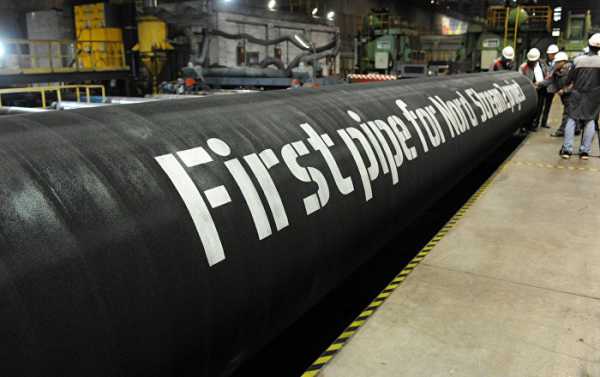
Earlier this month, German Economic Affairs and Energy Minister Peter Altmaier pointed out that the Nord Stream 2 gas pipeline had proved itself as a project aimed at ensuring energy security in the region.
In an interview with the Polish news network TVP1, former Polish Defense Minister Antoni Macierewicz claimed that cooperation on Nord Stream 2 between Russia and Germany damages Warsaw’s interests, which is why Poland should bolster its relations with the US.
“Germany pursues a policy of alliance with Russia and they jointly want to tighten the noose around our neck with the help of Nord Stream 2. They want to strangle both Poland and Central Europe, and forever make them dependent on their own economic and political power,” Macierewicz said.
He added that Poland would only be able to remain an independent state if US military bases are deployed in the country, and if the Nord Stream 2 project is never implemented. Both of these issues are key objectives of Warsaw’s foreign policy, according to Macierewicz.
“We must understand that only the United States is lending support to Poland on these issues,” he noted.
Macierewicz also underscored the importance of the Open Society Foundations of US billionaire George Soros, which he said helps Warsaw resolve these two problems.
His remarks came a few weeks after the German government’s deputy spokeswoman Martina Fietz said that Berlin considers the Nord Stream 2 project, which is set to facilitate the delivery of Russian gas to Europe, to be a rational one, given the expected growth in Germany’s demand for exported gas in the coming years.
Earlier, German Economic Affairs and Energy Minister Peter Altmaier praised Nord Stream 2, saying it’s a project which “proved itself.”
“I want that private initiative, those initiatives that are aimed at (enchancing) energy security and growth to be successful,” Altmaier pointed out.
In February, German Chancellor Angela Merkel said that her government considers Nord Stream 2 an economic project which does not pose a threat to the diversification of supplies.
Her remarks came after Germany allowed Russia’s energy giant Gazprom to build and operate the Nord Stream 2 gas pipeline in the country’s territorial waters, despite vehement opposition from Poland.
Nord Stream 2 is a joint venture between Gazprom, France’s Engie, Austria’s OMV AG, UK-Dutch Royal Dutch Shell, and Germany’s Uniper and Wintershall.
Due to be wrapped up before the end of 2019, the project aims to deliver 55 billion cubic meters of Russian natural gas per year to the European Union, by delivering it via a pipeline under the Baltic Sea to Germany.
Sourse: sputniknews.com






